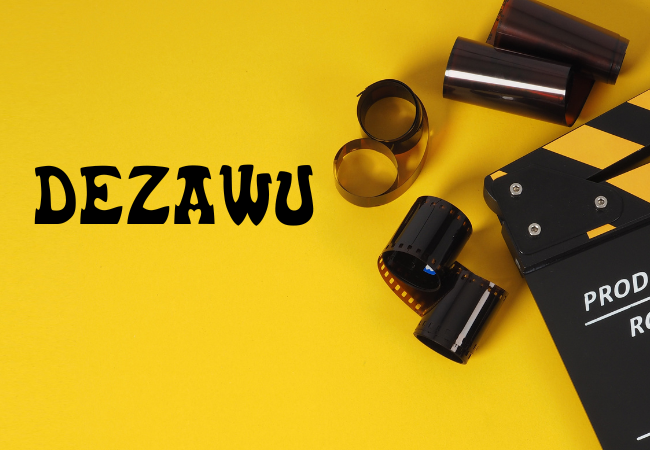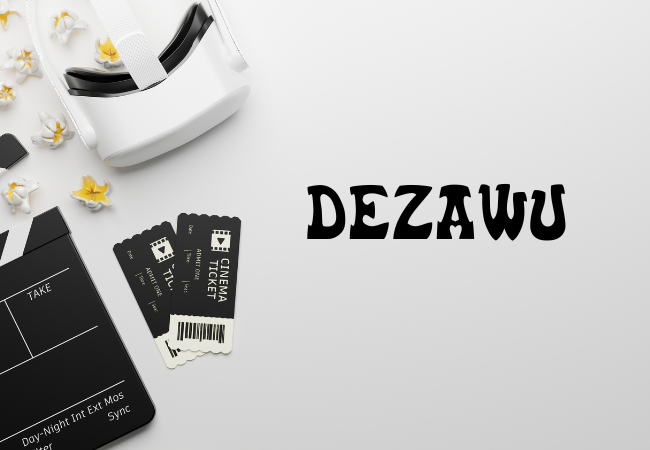Dezawu: A Journey Through the Mystical

\That sudden, fleeting sense that you’ve lived this moment before? This is the enchanting experience known as dezawu. It’s a phenomenon that bridges the gap between our past and present, stirring emotions that are both perplexing and beautiful.
Why This Journey Matters
Understanding dezawu is not just an intellectual pursuit; it is a journey into the depths of our minds and hearts. It touches on memory, emotion, culture, and even the very nature of time. By exploring dezawu, we unravel a tapestry woven from the threads of our experiences and the echoes of forgotten dreams.
Understanding Dezawu
Origins of the Term
The term “deawu” originates from the French phrase “déjà vu,” which means “already seen.” This aptly captures the essence of the phenomenon – the sensation that we are reliving a moment from our past. While the term is relatively modern, the experience itself is timeless, documented in various cultures and epochs.
The Psychological Perspective
Cognitive Theories
From a psychological standpoint, dezu is often explained through cognitive theories that delve into how our brains process memories. Some theories suggest that dezawu occurs when there’s a slight delay in the transmission of information from one side of the brain to the other, creating a dual perception of a single event.
Neurological Insights
Neurologically, dezawu is believed to involve the temporal lobe and the hippocampus – regions of the brain associated with memory and recognition. Studies using brain imaging techniques have shown that these areas light up during a dezawu experience, suggesting their crucial role in this mysterious phenomenon.
The Emotional Landscape of Dezawu
A Brush with the Past
Nostalgia and Memory
Dezawu often evokes a sense of nostalgia, a bittersweet longing for moments that we can’t quite place. It’s like a whisper from our subconscious, reminding us of a past that feels tantalizingly close yet remains out of reach.
The Subtle Intricacies of Emotion
The emotions triggered by dezawu are complex and multifaceted. They can range from joy and comfort to unease and confusion. This emotional cocktail makes dezawu a uniquely human experience, rich in psychological and emotional significance.
Cultural Interpretations
Western Views
In Western cultures, dezawu is often seen as a quirky mental glitch, a fascinating yet benign anomaly. It has been the subject of numerous studies and is frequently depicted in literature and media as a mystical experience.
Eastern Philosophies
Eastern philosophies, on the other hand, may interpret dezawu through the lens of spiritualism and reincarnation. It is sometimes viewed as a glimpse into past lives or parallel universes, adding a metaphysical dimension to the experience.

Dezawu in Literature and Art
Literary References
Writers and poets have long been captivated by dezawu, using it as a literary device to explore themes of memory, fate, and the uncanny. From Proust’s reflections on involuntary memory to modern sci-fi explorations, dezawu has inspired countless narratives.
Artistic Representations
Artists, too, have drawn on the concept of dezawu to create works that evoke a sense of familiarity and mystery. Paintings, films, and music often use this theme to connect with audiences on a deeply emotional level, creating a shared experience of wonder and introspection.
Personal Experiences
Stories from Around the World
People from all walks of life and corners of the globe have shared their experiences, each story adding to the rich tapestry of this phenomenon. These personal anecdotes reveal common threads and unique variations, highlighting the universal nature of .
Common Themes in Dezawu Moments
Despite the diversity of experiences, certain themes often recur in stories. These include a sudden recognition of a place, an uncanny familiarity with a situation, or a deep emotional response to an otherwise mundane event.
The Science Behind Dezawu
Memory Processing
Our memories are not static; they are dynamic and constantly being reprocessed. Dezawu may occur when there’s a mismatch in this processing, causing our brains to confuse the present with a memory we can’t fully recall.
Brain Regions Involved
The Temporal Lobe
The temporal lobe, located near the bottom of the brain, plays a key role in processing sensory input and assigning emotional significance to memories. It’s heavily involved in the experience of dezawu.
The Hippocampus
The hippocampus is essential for the formation of new memories and the recall of past ones. Its intricate connections with the temporal lobe make it a central player in the occurrence of dezawu.
The Mystery of Time
Perception of Time
Time is a fluid concept, shaped by our perceptions and experiences. Dezawu disrupts our usual sense of time, making the past feel vividly present and blurring the lines between now and then.
Time as a Psychological Construct
Psychologists suggest that time is as much a construct of our minds as it is a measure of the universe. Dezawu challenges this construct, offering a glimpse into how our brains can warp and weave time in mysterious ways.
Can We Control Dezawu?
Techniques and Tips
While we may not be able to control dezawu entirely, certain techniques can help manage the experience. Mindfulness practices, grounding exercises, and keeping a journal of dezawu moments can provide insights and possibly reduce their frequency.
The Power of Mindfulness
Mindfulness, the practice of staying present and fully engaging with the moment, can help us navigate the unsettling waters of dezawu. By grounding ourselves in the present, we can reduce the disorientation that often accompanies this phenomenon.
The Role of Dreams
Dream States and Deawu
Dreams are another realm where we encounter dezawu-like experiences. The dream state can blur the boundaries of time and reality, creating scenarios that feel both familiar and otherworldly.
Lucid Dreaming
Lucid dreaming, the practice of becoming aware that you are dreaming, can offer deeper insights into deawu. In this state, we can explore our subconscious and perhaps even unlock the mysteries of these fleeting moments of familiarity.
Philosophical Musings
Reality vs. Illusion
Dezau invites us to question the nature of reality itself. Is what we perceive as real truly so, or is it an illusion crafted by our minds? This philosophical inquiry opens doors to profound reflections on existence and consciousness.
The Essence of Existence
At its core, is a reminder of the enigmatic essence of our existence. It speaks to the complexity of our minds and the intricate dance between memory, emotion, and perception that defines our human experience.



